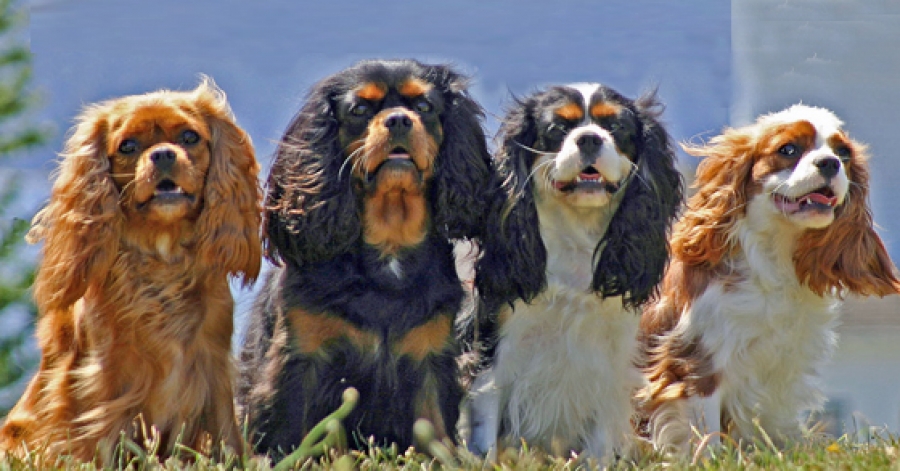
Testing Dog DNA
Learning our genetic history is significant for many individuals. And now, with many companies offering this service, we can find out much more about ourselves with just a swab of saliva, a few dollars, and a good Internet connection.
This passion for knowing who we are genetically has extended to our dogs as well. People are requesting their dog’s DNA information in record numbers.
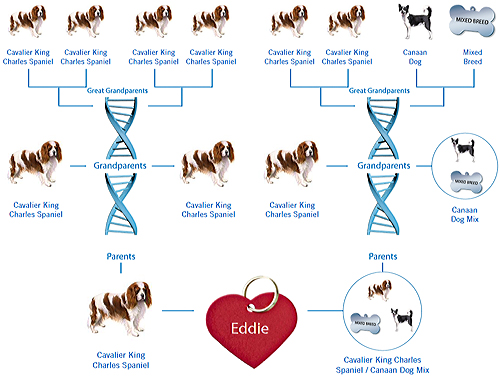
Dog DNA testing became available to the typical dog owner in 2007 and currently there are 3-4 companies with solid reputations for this process. All of the testing kits collect the DNA via a cheek swab sampling, except for the most expensive, which requires a blood test at a veterinarian’s office.
Not surprisingly, like most products, not all dog breed DNA tests are created equal. “The more breeds in a company’s database, the greater the chance for accuracy in their results, says Nathan Sutter, PhD, assistant professor of medical genetics at Cornell University. And generally, the more dog breeds the company has in its database, the more expensive the test”.
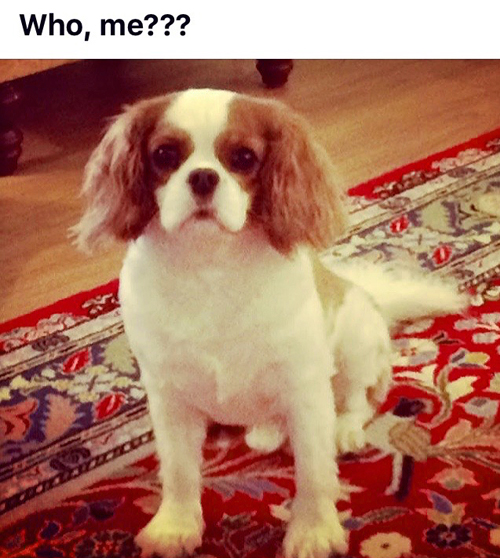
The dog below was adopted from a shelter who told the new owners that their dog was a Jack Russell Terrier mix. For years, the dad bragged to his buddies about how well behaved his terrier was compared to others he encountered. Lo and behold, a DNA test showed that the dog had one parent who was a purebred Bichon and another who was a purebred Beagle, both going back 3 generations!

Sutter says, “such dog DNA tests can typically identify the majority breeds in a canine with great accuracy. But if a dog is mixed breed and comes from a great many breeds, each with just a small contribution to the total, then the breed test may be unable to identify most or all of the breeds contributing to the dog”. Sutter says that if a dog has a purebred parent or grandparent, the results are highly accurate.

Currently there are several companies that market Doggy DNA testing. The test kits are priced from $60 and up, and the DNA test products are available online and at many pet supply retail stores. We are a fan of Wisdom Panel, http://www.wisdompanel.com.
With many more dogs being rescued, dog owners want better information about their new pup. Knowing a dog’s DNA can certainly provide excellent evidence about breed-specific concerns, as well as better understanding your pup’s behaviors.
Some dogs shelters and rescue organizations will test a dog’s DNA in hopes of getting the most accurate facts about the dog and thus enabling them to better help the dogs in their care. Also this information assists a great deal in finding the right forever home for rescued dogs.
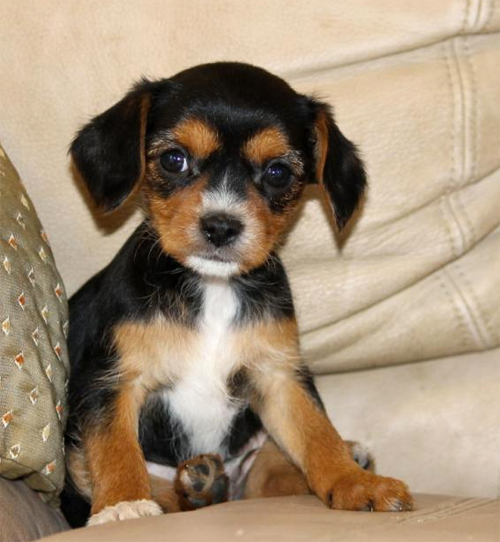
People who believe their dog to be a purebred will often get DNA testing for such confirmation. And some persnickety big city co-ops in NYC have even asked prospective co-op owners for their dog’s DNA results to ensure that only “allowed breeds” are allowed. Doggy discrimination! The dog above, by the way, is a Cavalier Yorkie mix.
Many dog owners want to know if these tests are really accurate. Do these tests work? In a recent Fortune magazine article, journalist Colleen Kane tells about her rescued pup. Kane used two different DNA kits on her dog. There were some discrepancies in the results. Kane, after discussion with both companies, learned that the discrepancies were partially due to the differences between companies and the extent of their databases. Overall, she trusted the information provided to her and she was glad to have learned more about her dog.

So should you test or shouldn’t you? It appears that the Doggy DNA data is reliable and helpful. The question is then what difference would the DNA data make for you and your dog? If it won’t make any difference to you or your dog, you‘re probably better off saving your money but if you think you will be a better dog owner with this information then DNA testing might be the right choice for you.
It certainly can be interesting! This cute little 12 lb. guy, Eddie, whose DNA profile was shown earlier, had a DNA test done by Wisdom Panel. While many ahead of the test guessed him to be a beagle or even small boxer mix and only a few people saw Cavalier, he’s actually 75% Cavalier, 12.5% Canaan Dog, and 12.5 a mix of something along the lines of a min pin or Italian Greyhound!
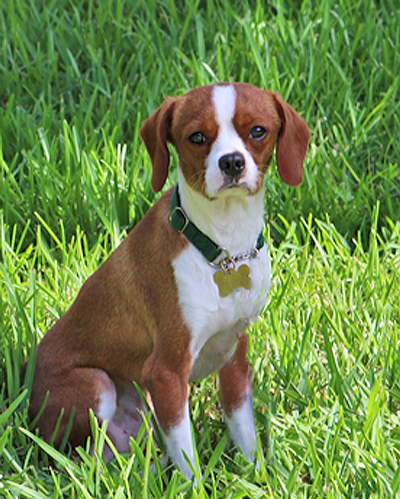
Article written by Shelley Greggs
